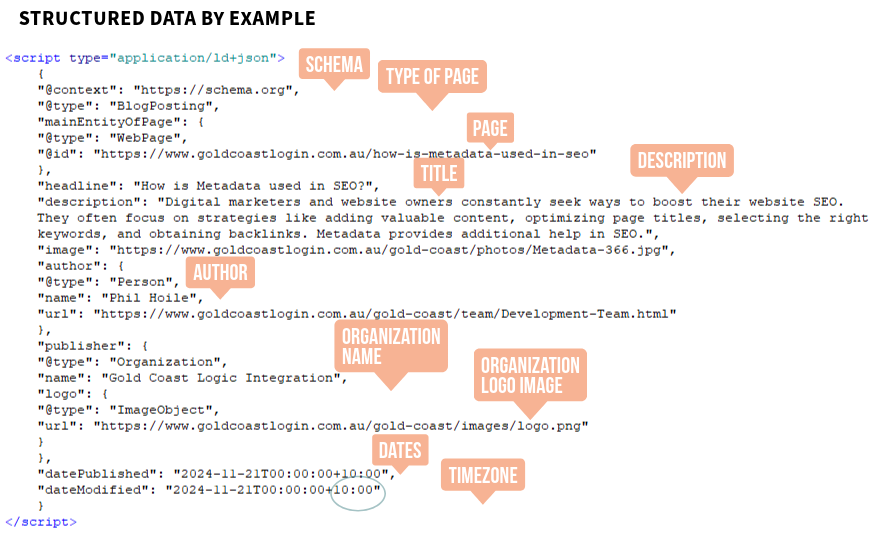How is Metadata used in SEO?

- Nov 21, 2024 modified: Jul, 15 2025
How is Metadata used in SEO?
Metadata Magic: How Hidden Data Shapes Our Digital World
If you're new to SEO, some terms might initially seem daunting and confusing. You're constantly searching for innovative ways to enhance your SEO, equipped with various tricks and tactics. However, you might also be looking for more subtle strategies to achieve your goals.
Enter metadata — a powerful yet often overlooked tool in the SEO toolkit. If you haven't heard about it yet, now's the time to discover how metadata can discreetly and effectively boost your SEO efforts.
How is Metadata used in SEO?
Digital marketers and website owners constantly seek ways to boost their site's SEO. They often focus on strategies like adding valuable content, optimizing page titles, selecting the right keywords, and obtaining backlinks. However, there are also lesser-known techniques that can make a significant impact.
One powerful but often overlooked tactic is utilizing image metadata. As technology evolves, the role of metadata continues to change, but staying informed about the opportunities it presents remains essential.
Metadata Basics
Metadata is data that describes other data. It provides information about a certain item's content. For example, in the context of digital files, metadata can include details such as the author of a document, the date a file was created, the size of a file, keywords associated with a file, and more. This helps organize, find, and manage data efficiently.
Here are some common types of metadata:
1 Descriptive Metadata: Information about the content of a resource, such as title, author, and keywords.
2 Structural Metadata: Information about how a resource is organized, like the table of contents or the layout of a webpage.
3 Administrative Metadata: Information to help manage a resource, such as creation date, file type, and access permissions.
In the context of images, metadata can include details like the camera settings used to take the photo, the date and location of the photo, and keywords or tags describing the image content. This metadata can improve SEO by making images more discoverable through search engines.
Useful Metadata in SEO
In SEO, the most commonly useful types of metadata include:
1 Title Tags: A webpage's title appears in search engine results and browser tabs. It's crucial for SEO as it provides a quick insight into the page's content.
2 Meta Descriptions: A summary of a webpage's content, which appears under the title in search engine results. Although it doesn't directly impact rankings, a well-written meta description can improve click-through rates.
3 Alt Text for Images: Descriptive text for images that helps search engines understand the content of the images. It's essential for image search optimization and accessibility.
4 Header Tags (H1, H2, H3, etc.): Tags defined headings and subheadings on a webpage. These help search engines understand the structure and main topics of the content.
5 URL Structure: The format of URLs should be clean, descriptive, and include relevant keywords to improve both user experience and search engine understanding.
6 Keywords: Although less heavily weighted than in the past, keywords in the title, headers, and throughout the content can still signal relevance to search engines.
7 Open Graph and Twitter Card Metadata: These optimize how your content is displayed when shared on social media platforms. By making shared links more engaging, they can improve click-through rates.
8 Canonical Tags: These help prevent duplicate content issues by specifying a webpage's "preferred" version (URL).
Using these types of metadata effectively can improve your website’s visibility and ranking on search engine results pages (SERPs).
How To Properly Use Metadata
Using metadata effectively can significantly boost your SEO efforts. Here are some tips on how to make the most out of your metadata:
1 Optimize Title Tags
Be Descriptive and Concise: Include relevant keywords, but keep it under 60 characters to ensure it displays properly in search results.
Unique Titles: Ensure each page has a unique title that accurately reflects its content.
2 Craft Compelling Meta Descriptions
Summarize Content: Write a brief summary that includes your target keywords naturally.
Call to Action: Include a call to action to encourage clicks. Keep it under 160 characters.
3 Use Alt Text for Images
Describe the Image: Use descriptive text that accurately represents the image content.
Include Keywords: Naturally incorporate relevant keywords, but avoid keyword stuffing.
4 Structure Content with Header Tags
Organize Content: To structure your content, use H1 tags for main headings and H2, H3, etc., for subheadings.
Keywords in Headers: Include keywords to signal content relevance to search engines.
5 Create Clean URLs
Descriptive and Simple: Use descriptive words separated by hyphens. Avoid unnecessary parameters or numbers.
Keywords in URLs: Incorporate relevant keywords to make URLs more SEO-friendly.
By applying these tips, you can enhance your metadata to improve search engine understanding, visibility, and ultimately, your site's SEO performance.
Structured Data can compliment Metadata
Structured data is used by Google to help it understand the context of the page. Google can use the data to create rich results in search. source: https://developers.google.com/search/docs/appearance/structured-data/intro-structured-data
It is not unreasonable to expect Google to 'learn' your structured data and use that to better understand which page of your site to display depending on the search query.
JSON-LD structured data "is a lightweight Linked Data format. It is easy for humans to read and write. It is based on the already successful JSON format and provides a way to help JSON data interoperate at Web-scale." source: https://json-ld.org/
Not all CMS systems produce structured data automatically or allow you to decide what to put in your structured data. Below is the structure we use for our blog articles-:

Final Takeaways
Harnessing the power of metadata is not just about improving search engine rankings — it's about taking control of your online presence. By optimizing metadata effectively, you empower your website to stand out, attract more visitors, and grow your business in the digital world. Stay informed, adapt to changes, and consistently refine your strategies to achieve lasting success in SEO.
Search News Articles...
Recent Articles

Most AI Websites Fail to Rank
- Nov 18 2025
- /
- 205

Sitemap.xml Best Practices
- Oct 14 2025
- /
- 568

Fake Reviews on Google My Business
- Oct 07 2025
- /
- 423

Sending Emails from Code
- Sep 17 2025
- /
- 527

US Tariff Shifts Undermining eCommerce
- Sep 05 2025
- /
- 643

Small Business Success Formula
- Aug 23 2025
- /
- 507

Do Strong CTAs Help or Hurt Your Website?
- Jul 31 2025
- /
- 702

AI Crawlers vs Search Crawlers
- Jul 04 2025
- /
- 835

AI vs. Human Writing - How to detect Ai
- Jun 26 2025
- /
- 1247

Optimising for Brand SEO
- May 12 2025
- /
- 906
View All News Articles
Categories
A Gold Coast SEO and Web Developer